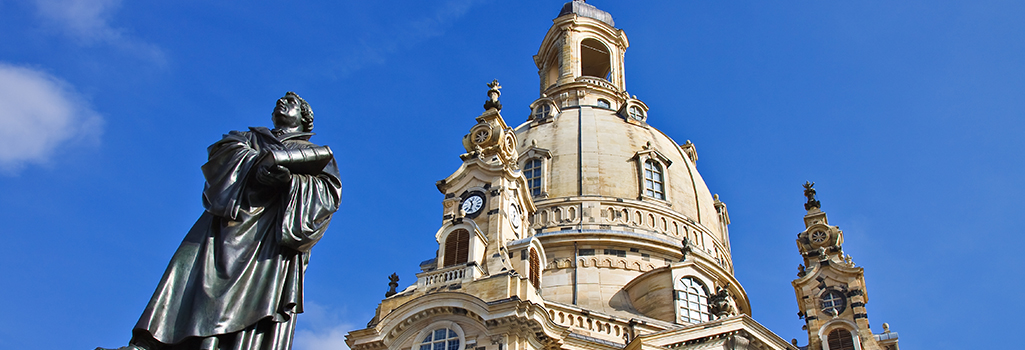
[from the webpage of the German Luther-Gesesellschaft. For the German version, see: https://www.luther-gesellschaft.de/kongress-f%C3%BCr-lutherforschung/geschichte.html]
The International Congress for Luther Research was established after World War II by the Lutheran World Federation (LWF). The idea was inspired mainly by Vilmos Vajta (1918-1998), then director of the Theological Department of the LFW, and the chairman of the LWF Commission of Theology, Regin Prenter (1907-1990). Thanks to their enthusiastic commitment, the first gathering took place in Aarhus (Denmark), where Prenter held the chair of Dogmatics. The Congress, held August 18-23, 1956, dealt with the topic “Lutherforschung heute” (“Luther research today”). Regin Prenter presented the Congress’ principal goal. Luther research had moved beyond the reformer’s home country (“Vaterland”), and the different strands which had developed “in a kind of isolation” (“in einer gewissen Isolation”) should become connected (Lutherforschung heute p. 12). The vision, to de-nationalize Luther went along with the LWF’s efforts to build a more peaceful world, even under the shadow of the Cold War.
The first Congress gave birth to the idea of a follow-up, if not a series. A Continuation Committee was established to plan the next Congress, which would take place in Münster, Germany, in 1960, August 8th – 13th with the topic “Luther and Melanchthon”. The following congresses have examined different topics (s. Saarinen 31):
The proceedings of the first five Congresses were published in separate volumes. Since 1983 the Luther Jahrbuch has published the keynotes and seminar reports.
Over seven decades the Congress has pursued the vision of its founders to bring together Luther researchers from all over the world to broaden their horizons by learning from others and transcending cultural and confessional boundaries. Even as the LWF’s financial support vanished over the decades, the Congress continues to see itself as part of the worldwide Lutheran community, as well as a forum for ecumenical encounters.
Steffen Kjeldgaard-Pedersen: „Luther Congress.“ In: Dictionary of Luther and the Lutheran Traditions. Ed. By Timothy Wengert et al., Grand Rapids: Baker Academic 2017 p. 465p.
Volker Leppin / Kirsi Stjerna: “Word and world: Luther across borders” The 14th International Congress for Luther Research, Thousand Oaks, California, 2022. In: Dialog, 61 (2022), p. 194-199
Lutherforschung heute. Referat und Berichte des 1. Internationalen Lutherforschungskongresses Aarhus, 18.-23. August 1956, ed. Vilmos Vajta. Berlin: Evangelisches Verlagshaus 1958.
Risto Saarinen: “Luther Congress in Wittenberg.” In: Dialog 57 (2018), p. 31-34.